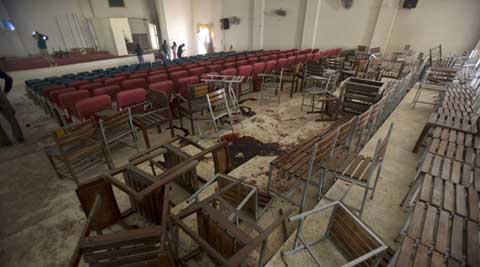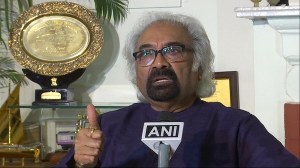- India
- International
The fault lies in
It does not symbolise a misreading of faith. It is its outcome.
We heard predictable responses when the bloody history of religious intolerance was further complicated by the blood of the children massacred in Peshawar. The cold logic that ran through these responses wasn’t original. The argument was that religion is an expression of sublime humaneness and the monstrosities committed in its name are the outcomes only of misinterpretation and misguided praxis. But historical experience doesn’t back this claim. If cultural progress is a journey bearing the accumulated wisdom of history, such claims are little better than rhetoric emptied of meaning.
I do not raise this coming from an essentialist, rationalist plane. My doubts arise from the absurd teleologies that we have come to imbibe through the conflation of religiosity with spirituality. There is reason to rethink what religion is. A religion is an institution or a system intricately linked to several limiting categories — including power, wealth, tribalism, ethnicity, rituals and making false claims in the name of spirituality, to which it is only remotely related. Clergies lay claim to great philosophies, which are the achievements of humanity as a collective, and generalise that communalism, intolerance and terrorism are occasional aberrations caused by the failure of their followers to understand the true spirit of their respective religions.
The truth, however, is that intolerance and communalism are the existential premises of any religion. Religion is raw and primitive politics, and has acquired only a superficial sophistication with the passage of time. The religious conflicts that bloody the earth today are modern expressions of prehistoric tribal animosities. They refute the claims of religious heads. What is the history of religion if not a continuum of crusades, jihads, assassinations and communal riots? The value systems and ethics that religions stake claim to didn’t evolve from a religious framework. Society produced them in its struggle for survival and progress. In the course of becoming power-wielding organisations and social institutions, religions claim to have fathered them.
But they have developed practices inimical to these values and ethics. This is how untouchability and caste discrimination as social practices came to exist. This is how the church, which wants to love thy neighbour as thyself and lead a simple life, came to be a magnate of power and pelf after imbibing the worst features of the political establishment. Those who kill in the name of religion also believe that one who has killed a human being has murdered the whole of humanity. To portray this contradiction as an erosion of values or an aberration is to mislead people.

All of this points to the understanding that spirituality is beyond religion, and perhaps even opposed to religion. The best evidence that supports this argument is that those who came to be known as prophets and founders of religious orders were opposed to the religious establishment of their lifetime. Not just prophets, even the zen gurus, sufis and yogis realised that organised religion fettered humanism and insisted on slavish obedience, and that the priestly class was an impediment to spiritual development.
Spirituality is beyond classification into Islamic, Christian or Hindu identities. It provides space, even for the non-believer, and encompasses unconfined humanism. It results in the merger of the human self with nature. The unholy nexus between religion and politics exists from the time when priest and king were the same and extends beyond the age of modern democracy.
Religion influences its followers by describing the other world and afterlife vividly. It inculcates fear early in our life that our short existence on this beautiful and sublime earthly world is a mere entrance test to get into heaven. It is not merely the merchants of terror who try to mould minds in this way. Every religious institution — from the mild to the extreme — attempts precisely this sort of moulding.
Peshawars are the inevitable outcome of a religious upbringing. The day-to-day experiences of religion are prompting the religious-minded to embrace the freedom of a spirituality not limited by forms and symbols, and which lies outside organised and clergy-mediated religion. A refined and cultured modern society ought to seek its freedom in such a space.
The writer is a poet and lyricist in Malayalam
EXPRESS OPINION
More Explained
Apr 24: Latest News
- 01
- 02
- 03
- 04
- 05











































